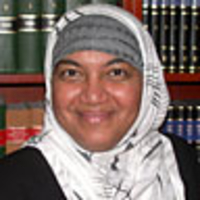
France's lower house of Parliament voted overwhelmingly on Tuesday to ban Muslim women from wearing a full veil in public. It targets, in particular, veils that obscure a woman’s entire face, like the burka and the niqab. The bill would slap a $200 fine on women who wear veils, and men would face a one-year jail term if they force their wives to wear burkas. Several other Western countries, including Canada, have similar legislation in the works—which has sparked major debates over whether the ban will ultimately drive Muslim women back in the home, rather than liberating them. Earlier this year, when Quebec considered a similar bill, Muslim feminist Sheema Khan argued in The Daily Beast that her nation was betraying its liberal values by supporting Quebec's attempt to ban the veil. Quebec has currently tabled the legistlation.
Last month, the Quebec government introduced a bill to curb the wearing of the niqab, or face veil, denying niqabis the right to work in the public sector or access public services such as health care and education. National Canadian politicians quickly piled on to support this violation of human rights: Prime Minister Stephen Harper endorsed the Quebec move, as did Michael Ignatieff, leader of the opposition Liberal Party. Women’s groups applauded the measure, citing the “oppressive” nature of the face veil.
Ostracizing veiled women will not integrate them.
Silly me. I thought feminism was about the empowerment of women to make choices. I see my ability to choose my hijab—a headscarf—as a manifestation of feminist ideals. Yet the niqab debate has seen the emergence of a Quebecois brand of feminism hostile to women’s own choices based on faith.
• Subhash Chopra: The Veil Is Un-IslamicThe bill is a short-sighted response to public outrage at the case of Naima Ahmed, a 29-year-old niqabi woman, originally from Egypt, who was asked to remove her veil in a Saint-Laurent College French class, supposedly so the teacher could better critique her pronunciation. The rigid sexual modesty requirements that often accompany the niqab created friction in the classroom, and Ahmad was asked to leave for making unreasonable demands, such as making an oral presentation facing away from the class. She filed a complaint with the Quebec Human Rights Commission. That should have been the end of it.
But her story leaked to the press, and Ahmad was expelled from school. She was accused of violating norms of gender equality and laïcité, the strict French concept of secularism in the public sphere. The same accusations are sometimes hurled at Muslim women who wear the headscarf, like me.
The most vehement reactions against face-veiling have come from women, who have projected their own fears, assumptions, and judgments onto attire worn by a minority within a minority. They think of the bad old days when the Catholic Church controlled women’s lives in Quebec. They pity the present-day lives of women in Afghanistan and Saudi Arabia. “We will save you from your own foolishness and your own delusional beliefs, for your own good,” they seem to say. “We will bring you to liberation by force. You Muslim women really aren’t independent until you embrace our lifestyle choices.”
In the meantime, they would deny us access to language lessons, hospitals, courts, schools, and public transportation—all services that help immigrants assimilate. But at the same time, they condemn the Saudi religious police for hounding women who don’t dress according to that government’s dictates.
If such an attitude is meant to intimidate Muslim women, good luck. Many are deeply committed to their choice, and will not sacrifice their beliefs. The lives of niqabi women are complex. Some are forced to wear the face veil, while others choose it freely out of conviction. Many will refuse to abide by the government edict and will choose to remain home, often isolated. Ostracizing these women will not integrate them.
Of course, not all feminists are so stridently opposed to niqab. A courageous few have tried to highlight the humanity of Muslim women, allowing us to speak for ourselves. In her recent documentary Mes Soeurs Musulmanes (My Muslim Sisters), Quebec journalist and feminist icon Francine Pelletier explores the spiritual commitment of two independent, engaged Quebec hijabis.
The Bouchard-Taylor report of 2008, commissioned by the Quebec government, recommended adoption of “open secularism” to deal with the integration of Muslim immigrants and discrimination against them, without compromising free expression. Instead, the tone in Quebec has degenerated to “my-way-or-the-highway.”
The intrusion of government into a woman’s choice of attire can never be a good thing. This bill targets Muslims and violates the fundamental right to freedom of religion. It legislates racism against an identifiable minority. Imagine paying taxes for government services, and then being denied access to those services because of your choice of religion or how you dress.
As Naima Ahmed has said, “I’m just like any other person. The only difference is that I wear a veil over my face. It doesn’t mean I’m wearing a veil over my mind.”
Sheema Khan holds a Ph.D. in chemical physics from Harvard, and is a patent agent in Ottawa. She also writes for Canada's Globe and Mail, and is the author of " Of Hockey and Hijab: Reflections of a Canadian Muslim Woman".






